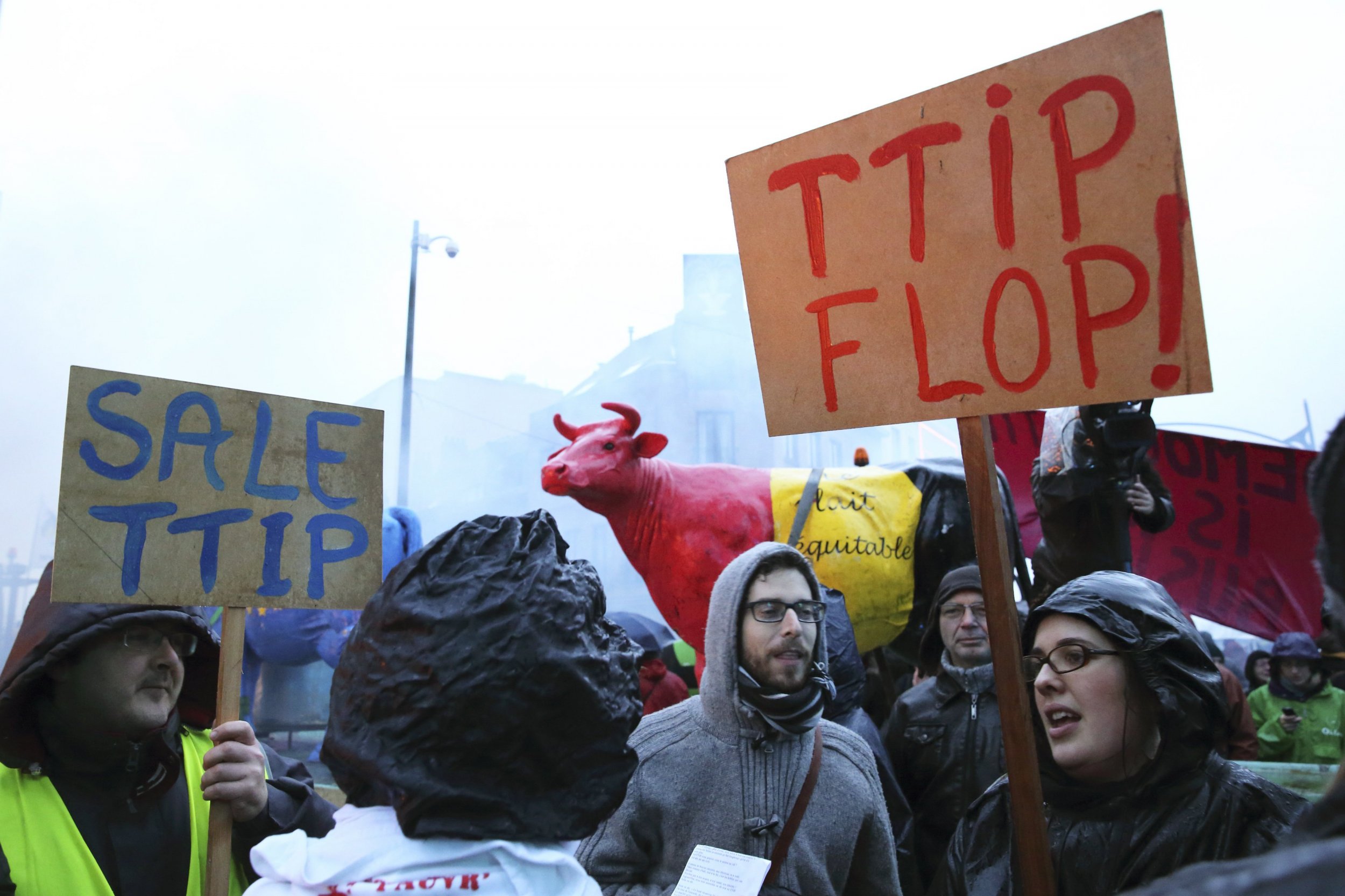
A European commission report on the findings of a Europe-wide public consultation has outlined 'widespread opposition' to major parts of the proposed free trade agreement between the EU and U.S. known as the Transatlantic Trade and Investment Partnership (TTIP).
The consultation received a record of almost 150,000 responses and involved several organizations including trade unions, law firms, national chambers of commerce, NGOs and others, and focused on one of the most controversial aspects of the agreement, the Investor State Dispute Settlement (ISDS) clause.
Critics say the ISDS clause would allow private companies to sue national governments in secretive international tribunals for attempting to regulate areas of the economy that might result in a loss for private companies.
The consultation, which was carried out between late-march and mid-July last year, asked people 12 questions concerning investor protection and the ISDS clause. According to the European Commission report, replies "collectively reflect a rejection of ISDS as a matter of principle. Most of them also reflect opposition against TTIP in general." The report adds "ISDS is perceived by most of the respondents as undemocratic, or as a threat to public finance… A significant number of respondents are concerned about the implications of TTIP and ISDS for democracy and democratic values. Some respondents are concerned about sovereignty issues and that the EU is being forced to succumb to American standards and attitudes, or would otherwise suffer from a power imbalance."
A report by the campaign group, War on Want, pointed to several case studies of these tribunals, including one in Ecuador, where the government was successfully sued for $1.77 billion when it terminated Occidental Petroleum's contract after it broke national law. Another widely cited example is tobacco giant Phillip Morris's ongoing attempts to sue the Australian government for trying to regulate the packaging of cigarettes.
Executive Director of War on Want, John Hilary, thinks the overwhelming conclusion will most probably be disregarded: "Already you're seeing the European Commission showing contempt to European public because they hold a public consultation and say we're not going to take them into account… There is this massive gulf from where the public are on TTIP and where the politicians are on TTIP."
"There is something profoundly rotten in the whole conduct of the TTIP negotiations, Hilary continued. "Unprecedented levels of public interest and opposition are being disregarded and in their place reams of propaganda from Brussels and white hall here. There really is a massive democratic deficit."
European Commission president Jean Claude Juncker has previously hinted that his support for the ISDS clause is qualified at best, saying in July, just before his appointment: "I don't understand why great democracies would not have faith in the judiciary. We have courts which are able to deal with cases that are brought to them, and so I'm not really in favour of what one could call "private courts" or arbitration bodies which may sometimes reach good decisions but don't always have to justify their decisions."
When naming his Commission - a delicate political balancing act - Juncker also removed responsibility for approving the ISDS clause from pro-TTIP trade commissioner Cecilia Malmström to vice-president Frans Timmermans. Timmermans is from the Netherlands, who have raised concerns about the agreement.
However, support for the ISDS clause remains strong within the EU. In a letter addressed to Cecilia Malmström, 13 european trade ministers - including the UK, Spain, Denmark and Finland - outlined their insistence that ISDS be included within the TTIP negotiations: "The Council Mandate [granted for the negotiations] is clear in its inclusion of investor protection mechanisms in the TTIP negotiations; we need to work together on how best to do so. We are confident that you can achieve that goal and also secure our objectives across the whole of the mandate that the Council has provided we will work closely with the commission to achieve those aims."
The European commission did not immediately respond for comment.
Uncommon Knowledge
Newsweek is committed to challenging conventional wisdom and finding connections in the search for common ground.
Newsweek is committed to challenging conventional wisdom and finding connections in the search for common ground.
About the writer
To read how Newsweek uses AI as a newsroom tool, Click here.





